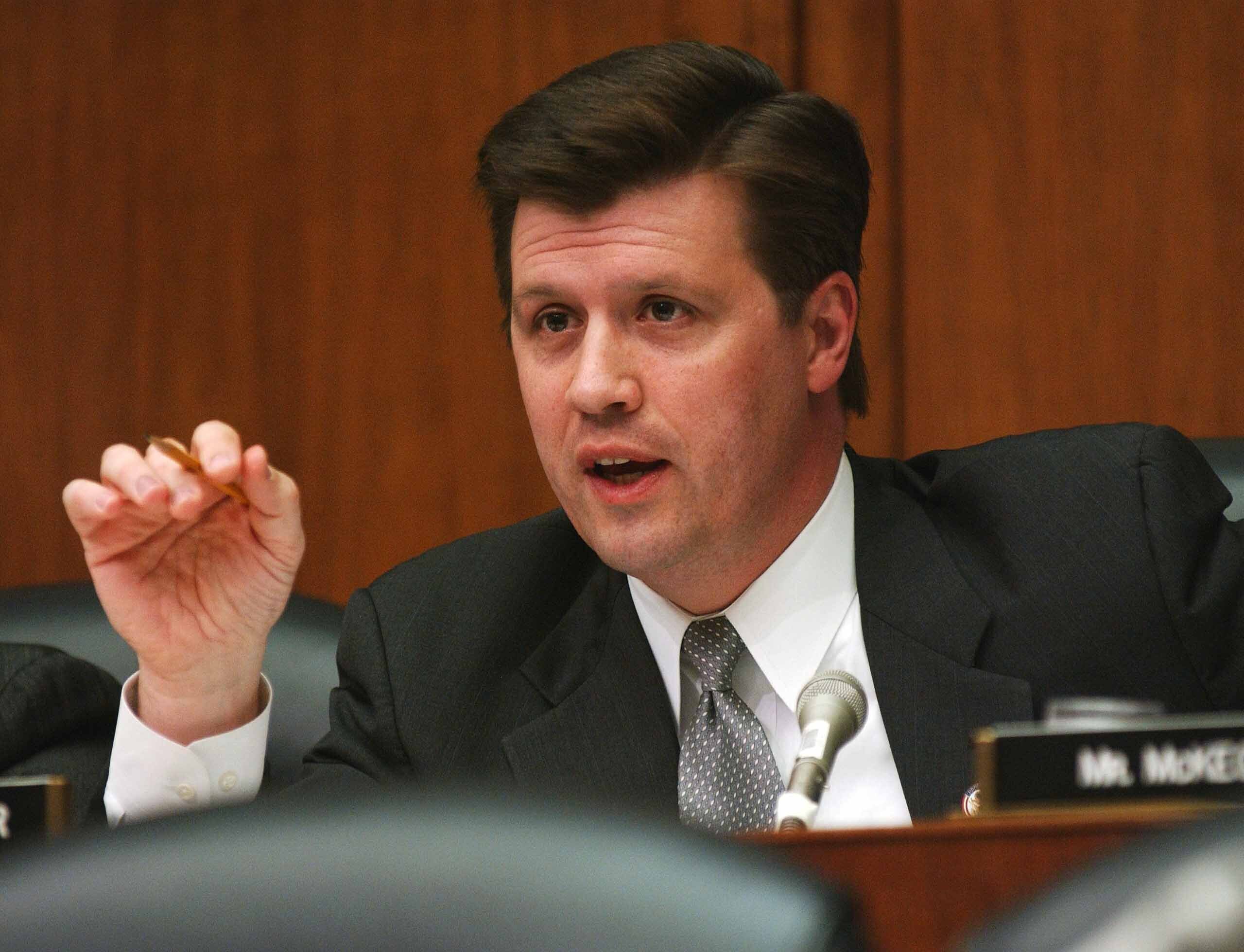
Former Rep. John Hostettler fell short on Tuesday in his bid for the Republican nomination in Indiana’s 8th Congressional District, after facing a massive spending disadvantage fueled in part by pro-Israel super PACs that had accused him of antisemitism.
State Sen. Mark Messmer, a conservative businessman who heavily outraised Hostettler, won the primary and is the prohibitive favorite to win the heavily Republican seat in southwestern Indiana come November.
In addition to out-fundraising Hostettler by a nearly 19-to-1 margin, Messmer received super PAC support totaling $5.1 million, compared to less than $800,000 in super PAC money for Hostettler.
Hostettler’s defeat marked a victory not only for proponents of U.S. aid to Israel, who made Hostettler their first Republican target in many years, but also for traditional Republican foreign-policy hawks eager to dispatch a committed anti-interventionist.
Messmer and Hostettler both profess their loyalty to former President Donald Trump, as well as opposition to illegal immigration and the policies of President Joe Biden. But Hostettler’s allies also touted his opposition to U.S. foreign aid, including to help the Ukrainian war effort.
“It’s a little emblematic of the Republican Party as a whole, in that we’re sort of beyond whether Trump and MAGA control the party — they do,” Joshua Claybourn, a Republican attorney and political commentator in Indiana, told HuffPost on Monday. “It’s just what aspects of Trumpism come out the most in the candidate.”
Claybourn nonetheless believed that Hostettler, whose brother-in-law Jeffrey Knight is a major GOP fundraiser, could have managed to raise more than the $41,000 he brought in as of mid-April. Hostettler’s fundraising during a failed 2010 bid for the Republican Senate nomination was only marginally stronger.
“Hostettler’s policy positions were ripe for the MAGA moment,” said Claybourn, who is neutral in the race. “And he could have rode that wave, but the lack of fundraising and spending has really handicapped him.”
Hostettler came to power in the House during the landmark 1994 midterm election, which gave the Republicans control of the lower chamber for the first time in 40 years.
But unlike many of his peers in that cohort, Hostettler extended his commitment to small government to the United States’ footprint abroad.
Hostettler’s record as a paleoconservative opponent of U.S. foreign policy entanglements included consistent votes against foreign aid bills and a lonely stand against the Iraq War in 2002. He was one of just six House Republicans to vote against authorizing a war. With help from Trump, Hostettler’s dim view of the Iraq war would later become the conservative consensus.
But to pro-Israel groups and the GOP foreign-policy establishment, for whom aid to Israel is a sacrosanct part of the annual foreign aid package, Hostettler’s dissent from the bipartisan foreign-policy consensus was a nuisance. They also faulted him for voting against an Oct. 2000 House resolution expressing “solidarity” with Israel during another period of unrest and condemning “Palestinian leadership for encouraging the violence and doing so little for so long to stop it.”

To that end, some pro-Israel donors supported the conservative Democrat Brad Ellsworth, who unseated Hostettler in 2006.
Then, in 2008, Hostettler wrote a book about the Iraq War, “Nothing for the Nation: Who Got What Out of Iraq.” The book’s discussion of the Israeli ties of several neoconservative Jewish policy makers in the George W. Bush administration prompted Abe Foxman, then-national director of the Anti-Defamation League, to accuse Hostettler of “blaming the Jews for the Iraq War.”
The Republican Jewish Coalition, whose super PAC spent $1 million to back Messmer, cited the book’s alleged “antisemitic tropes” when explaining its opposition to him.
The American Israel Public Affairs Committee’s super PAC, United Democracy Project, made Hostettler its first Republican target since its founding in 2021. In a conservative district with very few Jewish residents, the group spent $1.6 million attacking Hostettler for his votes against Israel aid.
UDP’s ads use whatever themes are most effective for electing pro-Israel candidates, which means they rarely mention Israel policy — an issue that, until recently, was not at the forefront for many voters. But at least one of the group’s anti-Hostettler spots focused on his Israel policy record, a clear reflection of the group’s view that it would hurt him with Republican primary voters.
Hostettler reacted to the onslaught of campaign cash in an early April Facebook post dotted with references to antisemitic tropes.
In that post, he dubbed Foxman a rabbi, which he is not, and mocked the ADL as “Anti-Defamation of Leo Frank.” The latter is a reference to the ADL’s defense of Frank, a Jewish man lynched in Georgia in 1915 while serving a prison term for murder.
Referencing terms used in coverage of pro-Israel donors’ work against him in 2006, Hostettler also used sarcasm to imply that a pro-Israel cabal was out to get him.
“Who knows? Maybe they’ll be successful again,” he said. “And by ‘they’ I mean that ‘loose network’ — that doesn’t seem quite as ‘loose’ today as in 2006 — DEFINITELY NOT some ‘cabal.’”
Disclaimer: The copyright of this article belongs to the original author. Reposting this article is solely for the purpose of information dissemination and does not constitute any investment advice. If there is any infringement, please contact us immediately. We will make corrections or deletions as necessary. Thank you.
